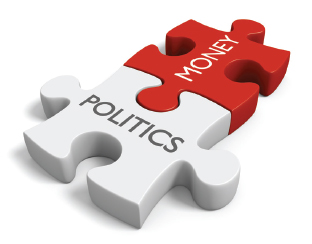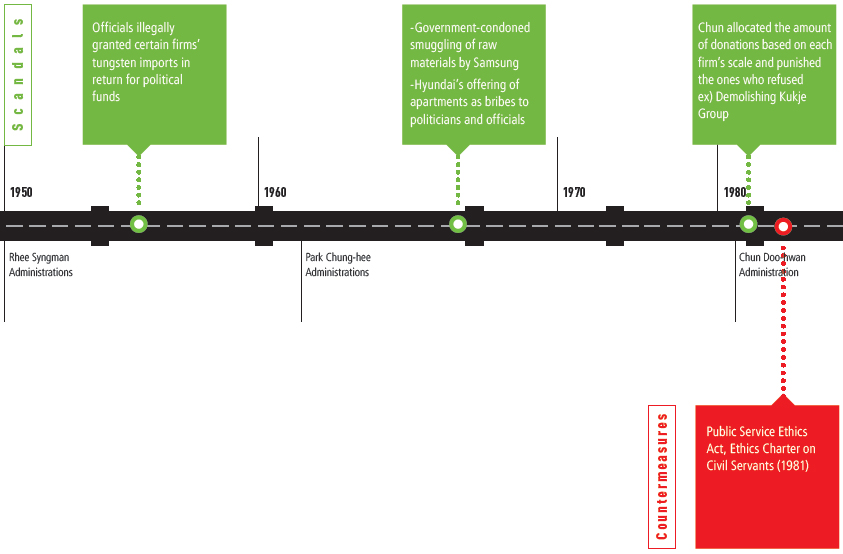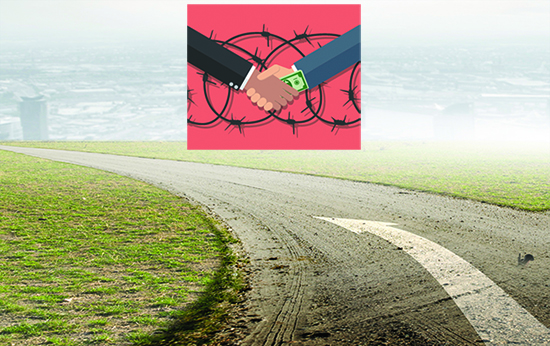

This story may seem like a plot for a screenplay, yet it is happening right here in the democratic nation of Korea, according to the news media and investigation briefings released by the prosecutors. Such news and the investigation into President Park Geun-hye and the civilian Choi Soon-sil’s inappropriate relationship has sparked nation-wide turmoil throughout Korean society. Hundreds of thousands of citizens have gathered, holding candles and demanding that President Park resign and that justice be done for the related crimes. On the other hand, others have gathered to support the President, with national flags in their hands. Members of social and academic organizations and students have announced statements on the situation and joined the protest, too. “I was angry after hearing the news,” said one anonymous student who has participated in protests. “At the same time, I also felt ashamed about my indifference to politics, which indirectly allowed this situation to happen. So, I joined the protest to show that I will no longer tolerate such shady actions from politicians and the government - no more. I think others feel the same.”
Based on the prosecutors’ briefings and news about the investigation through February 2017, Choi’s alleged interference in state affairs started from the private sector, such as the influence she wielded in her daughter’s university matriculation and sports career. Moreover, her power even reached to the public sector, with her being allegedly involved in such actions as the appointment of public officials and affecting the enterprise selection in national projects.
Regarding these matters, the prosecution team suspects that not only Park’s help, but also the well-known Korean corporations’ monetary support also made such deep and wide interventions possible. As an example of the corporations involved, Samsung, the largest conglomerate of Korea, provided financial support to Choi’s daughter Chung Yoo-ra by buying horses and funding her equestrian training in Germany. Moreover, the prosecutors assume that Samsung, along with other firms, donated large sums of money to Choi’s K-Sports and Mi-R Foundation under Park’s instructions. Although Samsung has claimed that there was no quid pro quo involved with these transactions, prosecutors think that in return for the support they provided, President Park promised reciprocal favors such as helping Samsung C&T’s merger with Cheil Industries, so the CEOs of some Samsung companies are now under suspicion of bribery in the eyes of the prosecutors.
The History of Politics-Business Scandals
and Countermeasures against them

According to the SBS [Report+], the corruption scandal between government and business started back in the 1950s. In 1952, during the Korean War, the Rhee Syngman administration illegally granted certain firms’ tungsten imports in return for political funds. After this beginning, every succeeding administration was embroiled in political scandals based on the intimate politics-business relationship. During Park Chung-hee’s time in office there were many corruption scandals, such as the government-condoned smuggling of raw materials by Samsung, and Hyundai’s offering of apartments as bribes to politicians and officials. In the Chun Doo-hwan administration, the President allocated the amount of “donations” based on each firm’s scale, and any who refused were punished. Roh Tae-woo, who succeeded Chun as President, also formed a slush fund during his term of about 500 billion KRW. Even under the so-called “civilian” administrations which followed, the son of President Kim Young-sam, the sons of President Kim Dae-jung, and the brothers of Presidents Roh Moo-hyun and Lee Myung-bak were all involved in bribery cases or corruption tied to certain firms. As a result of these corrupted relations, according to a column in The Hankook Ilbo, a common saying has arisen which states that “in Korean history, no president has retired with applause when they left the Blue House.”
Before the new and highly regulated Political Fund Law took effect in 2004, there were also similar relations formed between National Assembly members and business interests. The most recent and famous case to occur before this law was enacted was the “vanload of illegal cash donations (Cha-tte-gi in Korean)” scandal. Back in 2002, The Grand National Party (Hannara-dang) illegally collected anywhere from a few billion to tens of billions of KRW from several Korean firms, using cash-loaded vans. After such dark relations were revealed, the party’s presidential candidate, who had seemed the clear victor according to most polls up to that point, lost the election and the party went through hard times for years. Moreover, even before, when corporate donations to political parties were legitimate, many firms “donated” large sums of money to the ruling and powerful parties especially. For example, during the Kim Young-sam administration, a certain insolvent steel company bought off politicians and officials to fabricate its credit rating and get huge loans from several banks. A few years later, the truth came out and many members of the National Assembly, other politicians, and even some bank presidents were arrested and sentenced to imprisonment by the court for their involvement in this event.

Nowadays, the overall nature of these close relations in Korea has been improved to become much cleaner in comparison to the past, especially in the case of ties between the National Assembly and business firms. To accomplish this, slight movement towards transparency, various efforts have been made like the aforementioned Political Fund Law of 2004 or the Real Name Financial Transaction System, which was initiated by presidential decree in 1993. Particularly, the Political Fund Law fixed an upper limit to each candidate’s fund during both election periods and ordinary times. The law banned corporate donations to political parties as well. “When I look around at the front, as an insider, the actual corruption and bribery in assemblies have been highly reduced since the 2004 law went into effect,” stated Councilman Kim Jong-chan of the Gyeonggido Assembly. Lim agreed with this assessment and added, “applying this law also gave more equal opportunities to every candidate because it reduced the monetary power in politics by restricting biased donations from firms, and by giving subsidies to candidates. The usages and the sources of political funds have been regulated, so all politicians have no choice but to get used to smaller funds.”
However, Korea’s score on the World Transparency Index has not changed for a decade, which means that corruption in politics has still not been significantly reduced. On the contrary, based on the Corruption Perceptions Index (CPI) announced by Transparency International (TI), which shows corruption in the public and political sectors, Korea’s ranking on the world list in 2016 was 52nd place out of 178 countries, a severe drop from the previous year’s position of 39th out of 168 countries. Regarding this drastic decline, one board member of TI Korea said, “it seems that the major corruption cases which were revealed last year in the defense industry and overseas resources development negatively affected the index,” according to his interview with The Hankyoreh. In the article, TI Korea also forecasts that this year’s index will be much worse because of Choi and Park’s scandal. Lee Chung-joo, a UOS visiting professor and researcher at The Seoul Institute for Transparency (SIT), said, “although the number of corruption cases is lower than in the past, there still remains much corruption based on the politics-business relationship, as we’ve seen on the news. So, it continues to affect our country’s position on such indices.”
One of the strongest partners of business that blocks Korea’s higher transparency is the government itself. The cause of their ties is that the executive branch and officials currently have stronger power than the other sectors of the government, Lim mentioned. At first, when the politics-government relationship was started in 1960~70s, it was more productive and they worked for the greater good, with the common goal of economic development. “Back then, when the government announced the grand agenda, it gave extra advantages to the firms who followed their plans, such as lowering taxes or allowing dumping sales. So, they were able to outgrow others who did not follow the plans. Government and enterprises shared the same plan and identical goals through the policy network, and it helped Korea’s rapid economic growth,” Lim said. In other words, the initial relationship focused more on effective functionality, and it worked as a growth engine for industry in the short term. This kind of productive and positive operation of the politics-business relationship was rather helpful for the nation’s development.
Yet for a long time, it has caused other side effects as well. As government-cooperative enterprises have grown, the entire industrial structure has been formed with these conglomerates at its core. Certain risks lie embedded in this structure regardless of its current degree of development. According to a Los Angeles Times’s report from 2016, 20 percent of the entire gross domestic product of Republic of Korea (ROK) depended on Samsung, and because of this, some Koreans have even jokingly referred to their country as the “Republic of Samsung.” A Yonhap News article on the same topic states that it is worrisome when one country’s economy structure is largely dependent on a single corporation because the country’s future could be tottered by that corporation’s rise and fall. “The current Korean economy has been formed in favor of big corporations, so it is hard for medium-to-small sized firms to grow and compete fairly in the market,” Congressman Kim said.

On the 28th of September in 2016, the Improper Solicitation and Graft Act (colloquially known as the Kim Young-ran Act) took effect with the stated purpose as “ensuring that public officials, etc. perform their duties in a fair manner and securing public confidence in public institutions by prohibiting improper solicitations to public officials, etc., and by prohibiting public officials, etc. from receiving money, goods, etc.,” according to Article 1 of its provisions. Simply, the purpose of this law is to decrease corruption and increase transparency in Korean society by restricting government officials’ illegal money-related activities. In this law, the amount of money spent for “food and drink, congratulatory or condolence money, gifts, etc. offered for purposes of facilitating performance of duties, social intercourse, rituals, or aid” (from Article 3) is limited by presidential decree. For now, this limit is set at 30,000 KRW for meals, 50,000 KRW for gifts, and 100,000 KRW for cash presents. All public officials, assembly members and even faculty members of private schools and journalists come under the influence of this law.
All interviewees The UOS Times met agreed that this Act will bring about a much cleaner society, starting from the public sector. “Codes of conduct for public officials which contained similar regulations have already existed, but this law is more compulsory and advanced than previous ones, so I expect it will fulfill its purpose, just as the 2004 Political Fund Law changed election culture to make it much cleaner,” Kim said. Professor Lim also asserted that the Kim Young-ran Act will be able to remove cultural factors of corruption such as the custom of overlooking corruption between acquaintances. And in the long term, he hopes the law will eventually become a stepping stone for reducing inappropriate politics-business relationships. In fact, the law affects society from top to bottom, so even students and teachers need to avoid any potentially suspicious contact such as offering a bottle of coffee in gratitude, according to a KBS report.
Even with this promising law, however, there are still some barriers left in the road to a more transparent society. One deficiency is that current laws still have some loopholes. For example, “the most representative problem is that even the most recent anti-corruption law, the Kim Young-ran Act, has no articles about regulation or punishment for conflicts of interest,” Researcher Lee stated. He explained that most conflicts of interest in corruption happen in a form of conflict between public and private interest, giving a hypothetical example to elucidate the concept. If a politician hired close relatives to positions in his or her office without the proper procedures, and if the public then lost the chance to get better service from more suitable employees, then it would be a conflict of private and public interest. We could then assume that ultimately, we must rely on these individuals’ decisions every time such conflicts happened, without any documented regulations against it. So, this could be related to one of the major backgrounds of unjust relations as well.
All interviewees also consented that in the end, the public is the most important and final piece of transparency. Lim said, “throughout Korean history, lawmakers have tried to adopt the most effective systems and laws from other countries. So, the current system and regulations against improper relations and corruption are quite brilliant. Yet, as you can see from recent news, the final application is in the hands of the people who run and follow the system.” Lee also argued, “unless changes in public awareness of such relations and corruption become stricter than now, the current shady relationships will last a long time.” Some anonymous graduate students who currently study at UOS also pointed out the human factor in the anti-corruption system. They saw that students paid a lot of attention to the Kim Young-ran Act at first, but do not seem so concerned about it lately. So, they agreed that we need a while to see whether people will really make a cleaner society out of this law.
Due to so many variables, none of the professors or the politician The UOS Times interviewed for this article could provide any specific predictions about the future of transparency in Korean society or about how the relationship between politics and business is going to develop. Today, Korea is facing an unprecedentedly broad scandal, and its citizens have diverse opinions and beliefs on such matters. The future of society lies in each one of them - in the hand of the politician, in the gavel of the judge, in the microphone of the reporter, in the candle or the national flag of the protestor. Every road they take and each action they have made can affect the future of Korea forever. Now is a confusing time, yet it could also be a great chance to choose this nation’s next path. So, where is it going to be? What path is awaiting us? What blood will they transfuse into the political veins of Korea, more money or transparency? Only time will tell.
Shin Jeong-ho
jhshin2110@uos.ac.kr

